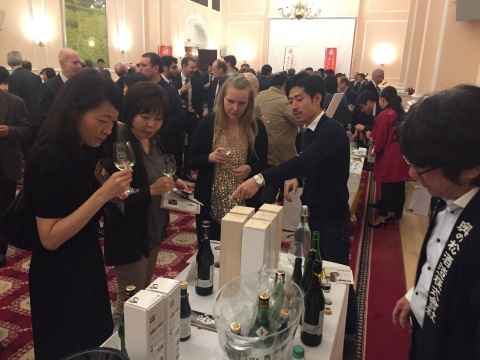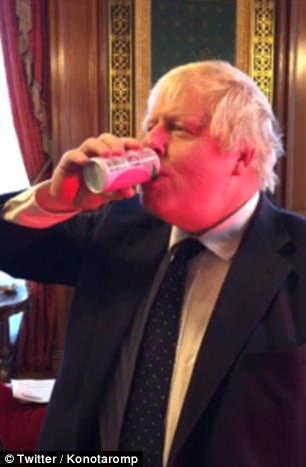Government and utilities shaken by high court challenge to public trust in Japan’s nuclear authority

Residents who filed an injunction to suspend the restart of a reactor at the Ikata nuclear power plant speak at a news conference Wednesday in Hiroshima.
Wednesday’s ruling by the Hiroshima High Court halting the planned restart of a nuclear reactor in Ehime Prefecture has cast doubt on the judgment of Japan’s Nuclear Regulation Authority — which had approved the restart under stricter post-Fukushima guidelines — shocking the government and utilities across the nation.
The ruling deals a heavy blow to a plan by Prime Minister Shinzo Abe’s administration to bring more reactors back online, and is sure to prompt the government and utilities to keep a closer eye on similar cases continuing across the country.
Yuichi Kaido, a lawyer representing local residents, called the ruling the “most important” since the Fukushima nuclear disaster, spurred by the Great East Japan Earthquake and tsunami on March 11, 2011.
About 40 court cases — including those seeking injunctions — were filed in the wake of the Fukushima meltdown disaster. But while district courts have ordered some reactors stopped, each shutdown decision has been overturned by a high court.
“This is the first time (plaintiffs) have won at the high court level,” Kaido said at a news conference in Tokyo. He said the ruling may signal a turn of the tide.
Wednesday’s ruling was also noteworthy for touching on the risk of volcanic eruption.
“The possibility of heated rock and volcanic ash reaching the reactor cannot be evaluated as small. The location is not suitable” for a nuclear reactor, said presiding Judge Tomoyuki Nonoue in handing down the ruling. The reactor affected is the No. 3 unit at Shikoku Electric Power Co.’s Ikata plant, which is located about 130 kilometers from the caldera of the volcanically active Mount Aso in Kumamoto Prefecture.
“The effect that volcanic ash may have on reactors nationwide is underrated,” Kaido said.
Government officials were quick to attempt to play down the risk. “It’s just a court ruling. The government’s position to seek the restart for reactors approved by the (Nuclear Regulation Authority) remains unchanged,” said a senior trade ministry official.
The central government’s target for power generations calls for 20 percent to 22 percent of the nation’s supply to be contributed by nuclear reactors by 2030.
Nuclear Regulation Authority Chairman Toyoshi Fuketa told a news conference that the high court decision would not influence its ongoing and future safety screenings of other reactors.
“We will just fulfill the role of a regulator,” Fuketa said.
But the reality is that utilities have been seeking to convince municipalities that reactors cleared by the watchdog under the tougher guidelines are safe.
“I’m worried that it could create negative momentum,” said an industry official.
For Shikoku Electric, the blocked restart will mean a spike in fuel costs as it will be forced to rely mainly on non-nuclear power generation.
“While the nuclear reactors are suspended, we will need to rely on thermal power, which means we will need to shoulder a ¥3.5 billion loss per month for fuel,” an executive of the utility said at a news conference on Wednesday.
Other utilities are facing similar constraints. Kyushu Electric Power Co. aims to restart two reactors at its Genkai plant in Saga Prefecture, but local residents have filed an injunction seeking to halt the move. A Kyushu Electric executive said he was “surprised at the unexpected ruling” on the Ikata plant.
Meanwhile, the response of residents in Ehime Prefecture was mixed.
One man voiced concern over the ruling’s potential to damage the local economy. The man, who runs a lodging business, said the town accommodated several hundred nuclear power plant workers a year before the Fukushima disaster.
“Ikata is a town of nuclear power,” he said. “I feel that (the ruling) has left locals behind.”
Another resident, however, welcomed the move as a judicial “breakthrough.”
-
Archives
- May 2024 (181)
- April 2024 (366)
- March 2024 (335)
- February 2024 (345)
- January 2024 (375)
- December 2023 (333)
- November 2023 (342)
- October 2023 (366)
- September 2023 (353)
- August 2023 (356)
- July 2023 (362)
- June 2023 (324)
-
Categories
- 1
- 1 NUCLEAR ISSUES
- business and costs
- climate change
- culture and arts
- ENERGY
- environment
- health
- history
- indigenous issues
- Legal
- marketing of nuclear
- media
- opposition to nuclear
- PERSONAL STORIES
- politics
- politics international
- Religion and ethics
- safety
- secrets,lies and civil liberties
- spinbuster
- technology
- Uranium
- wastes
- weapons and war
- Women
- 2 WORLD
- ACTION
- AFRICA
- Atrocities
- AUSTRALIA
- Christina's notes
- Christina's themes
- culture and arts
- Fuk 2022
- Fuk 2023
- Fukushima 2017
- Fukushima 2018
- fukushima 2019
- Fukushima 2020
- Fukushima 2021
- general
- global warming
- Humour (God we need it)
- Nuclear
- RARE EARTHS
- Reference
- resources – print
- Resources -audiovicual
- World
- World Nuclear
- YouTube
-
RSS
Entries RSS
Comments RSS








